Resources
A mortgage with an interest rate that has a fixed rate period and then converts to floating rate that adjust periodically to reflect changes in market conditions. Your mortgage payments are adjusted up or down as the interest rate changes.
An interest rate calculation that reflects the actual cost of a mortgage as a yearly rate. Because APR includes points and other costs, it’s usually higher than the advertised rate. The APR allows you to compare different mortgages based on rate offered and closing cost.
An estimate of the value of a home, made by a professional appraiser. On a purchase, the maximum amount of the mortgage is usually based on the lower of either the appraisal or the purchase price.
All the charges associated with getting your mortgage, including the origination fees, discount points, appraisal fee, title search, title insurance, survey, taxes, deed recording fee, charges for credit reports and other costs. Costs of closing usually add up to 3 to 6 percent of the mortgage amount.
A homeowner’s financial interest in a property. Equity is the difference between the fair market value of the property and the amount still owed on any home loans or liens on the property.
A special third-party account set up by the lender in which your funds are held to pay for taxes and insurance. “Escrow” can also refer to a third party who carries out the instructions of both the buyer and seller handles the paperwork at settlement such as a title company or attorney office.
A mortgage with an interest rate that stays the same (fixed) for the life of the mortgage. Monthly payments for a fixed rate mortgage are very stable.
The fee paid for borrowing money, which pays the lender’s costs of funds plus a profit.
Shorthand for the separate parts of a typical monthly mortgage payment.
Points are prepaid interest on your mortgage, charged by the lender at the time of closing. Each point is equal to one percent of the loan amount – that is, 2 points paid on a $100,000 mortgage would be $2000.
The expenses that are put into escrow at closing, usually including real estate taxes & insurance. This term also refers to interest paid in advance at closing. The interest paid covers the partial interest due the month of closing.
The amount borrowed or remaining unpaid. The part of the monthly payment that reduces the remaining balance of the mortgage.
An insurance policy the borrower buys to protect the lender from non-payment of the loan. PMI policies are usually required for a loan with a Loan-To-Value (LTV) percentage in excess of 80%.
Insurance that protects the lender (lender’s policy) or the buyer (owner’s policy) against a loss arising from disputes over ownership of a property.
